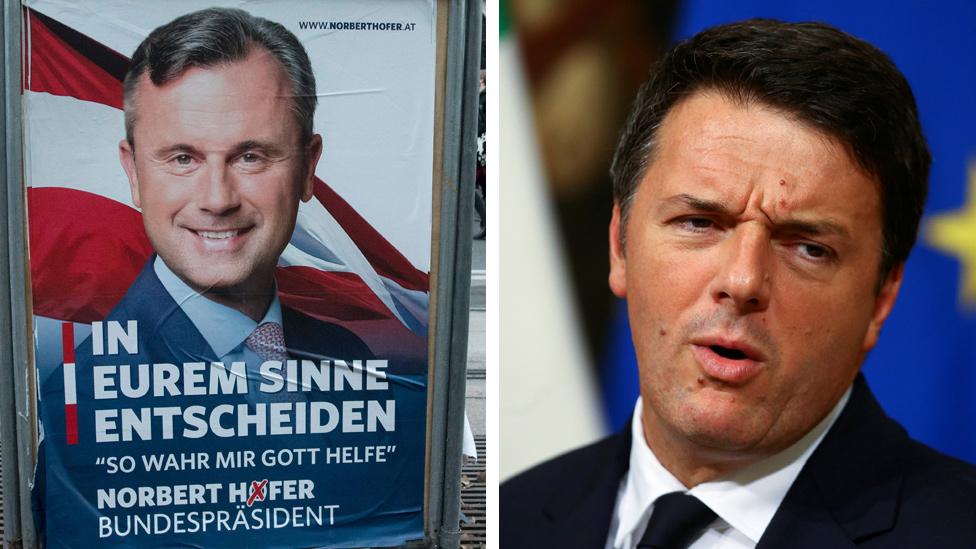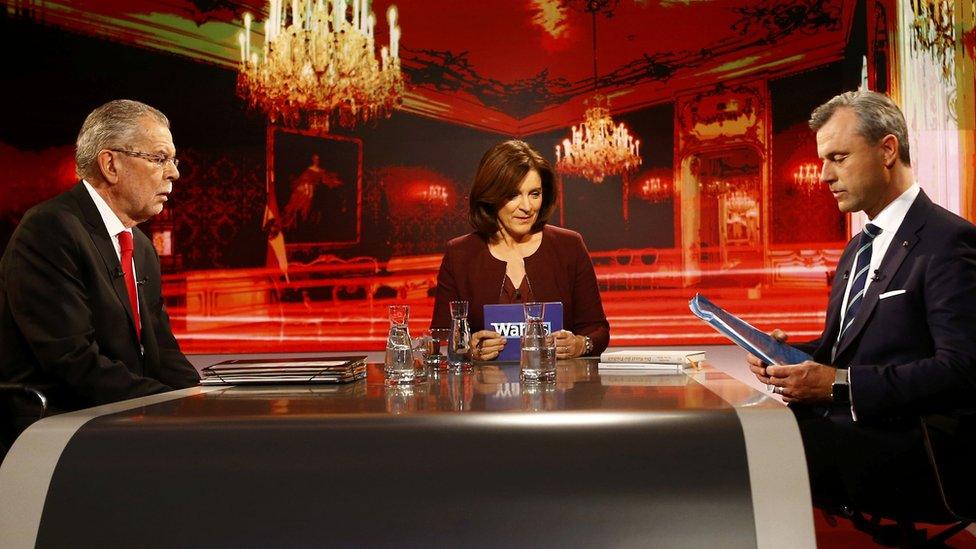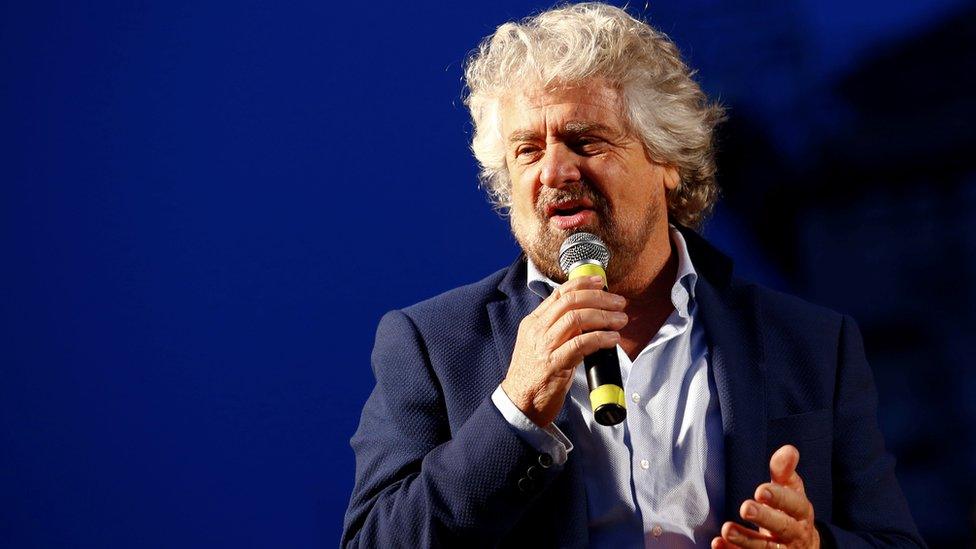Should European leaders fear Austria-Italy backlash?
- Published

Sunday will be decisive for Austrian far-right leader Norbert Hofer (L) and Italy's centre-left PM Matteo Renzi
There are an awful lot of alarmist headlines about this weekend in Europe - screeching headlines about the far right swooping into Austria's presidential palace, and painting Italy as poised to crash into financial, banking and political oblivion if Prime Minister Matteo Renzi loses a referendum on constitutional reform.
And both those hypothetical events would be hugely significant if they came to pass: Europe's first far-right head of state since World War Two in Austria, and uncertainty and instability in the eurozone's third-largest economy - Italy - spoken of in hushed, nervous whispers in EU corridors as "too big to fail".
There are fears of a tsunami of nativist populism sweeping through Europe in 2017 - in France, Italy, the Netherlands and beyond.
But the UK's June Brexit vote and Donald Trump's US election success do not make victories for Europe's far right or nationalist-minded, anti-establishment parties inevitable.
Disconnected voters
The so-called populists are growing in influence and strength because there's a yawning gap in the political market.
They are able to say to voters "We will actually listen to you".

Austrian presidential rivals: left-leaning Alexander Van der Bellen (L) versus far-right leader Norbert Hofer (R)
Voter anger, resentment and distrust of the Establishment is widespread, as we know.
But traditional politics is not dead in the water.
Wake-up call
The more than two million Austrians who voted for the Freedom Party (FPOe) in the first round of their presidential election in October are not all a screaming mob of far-right extremists.
Marine Le Pen hasn't made the French National Front (FN) the success it is today by continuing with her father's rabid anti-Semitism and xenophobia.
She changed the party to make it appear more mainstream. Young Frenchmen with a North African background hold visible positions in the FN.
Italy's Five Star Movement says - as do many of these political groupings in Europe - that it is neither of the right nor the left, but of the people.
Bingo.
So will 2017 in fact be the year traditional politics wakes up?
France's Hollande won't seek re-election
Italy referendum: Renzi risks populist wave

Beppe Grillo of the Five Star Movement urges Italians to vote "No" to Mr Renzi's constitutional reforms
If you're worrying about Italy this weekend, take comfort from the fact that the financial markets have wobbled in advance of the referendum, which suggests they won't take a startled nose-dive if Prime Minister Renzi loses as predicted.
Italy has had 63 governments since 1945. It's a country well versed in political instability.
Not good for the country or the wider EU and eurozone, but if Mr Renzi steps down, you can bet the Italian president already has in mind the technocrat government he will try to form until elections are held.
And the vote in Austria?
It's not "just" a presidential vote.
The resonance in Austria of having of a far-right figure as head of state cannot be overplayed. But it might serve to galvanise the bloated, self-entitlement-oozing parties of the centre in Austria (and elsewhere in Europe) to understand why they are failing, while "populists" are so popular, and perhaps work on serving their electorate far better.
And, of course, we don't yet know what Sunday will bring.
Polls suggest PM Renzi will lose in Italy and the far right will win in Austria.
But who dares trust polls these days?